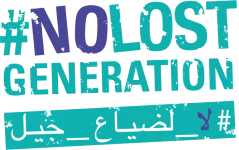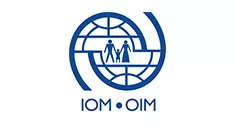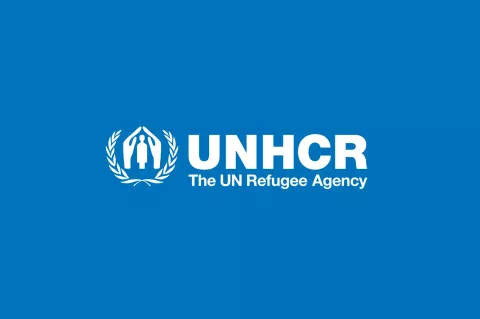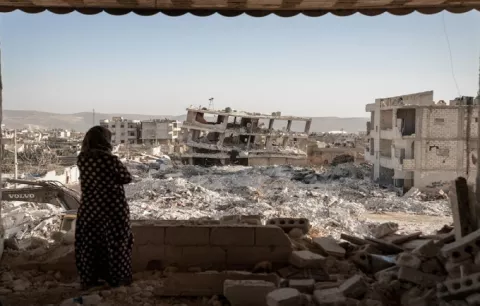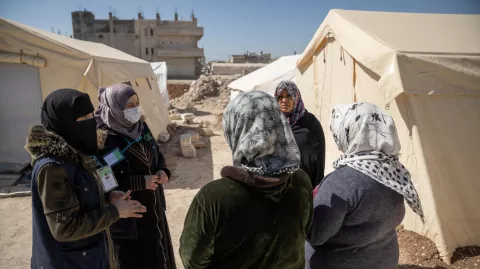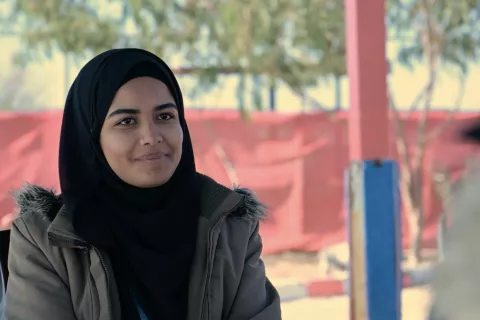Finding a safe haven and a way to contribute
IOM Turkey Public Information Unit
No Lost Generation is marking the 10th year of crisis inside Syria with a series of blog posts shedding light on the comparative situation of children. Publishing one blog post a day, we will underline the needs of children and youth affected by the Syrian crisis and share the experience of our partners responding to their plight. We need to redouble our efforts and rethink our interventions, to shape a better future for 10.7 million children.
Nader was a 34-year-old teacher in a small village in Idlib Province. Every morning he taught children in the only school in the village. In the evenings he would sit in a small workshop and make clothes for the few clients he had. Nader needed two jobs to be able to pay for the medical care he requires for a health condition. He and his wife were also dreaming of buying their own home, so he didn’t mind doing the extra work to gain additional income.
His life changed in 2011 when conflict and destruction came to his village, with constant shooting and bombardment. He had to close his workshop due to the deteriorating security conditions, but he never took a break from teaching his students. “I had to do it because the children needed education,” he says. In 2019, the bombardments became so severe that the residents had to flee to the north near the Syrian-Turkish border. “We couldn’t stay. We had no choice but to either leave or wait for death.”
The school eventually closed, and Nader and his wife decided to leave and join other people from his village at the Maaret Al-Ikhwan planned camp run by IOM. This camp was established by IOM to provide shelter for the vulnerable Internally Displaced Persons (IDPs) who had been forced to leave their homes because of the conflict. In this planned camp, Nader and his wife were able to access a variety of services, including health care and clean water. Most importantly, they were safe there.
Once he was settled in the camp, Nader set up his small sewing business and started providing tailoring services, as he had managed to bring his sewing machine along with him. However, he was aware of the need for education among the children living in the camp, and he was passionate about preparing them for future opportunities.
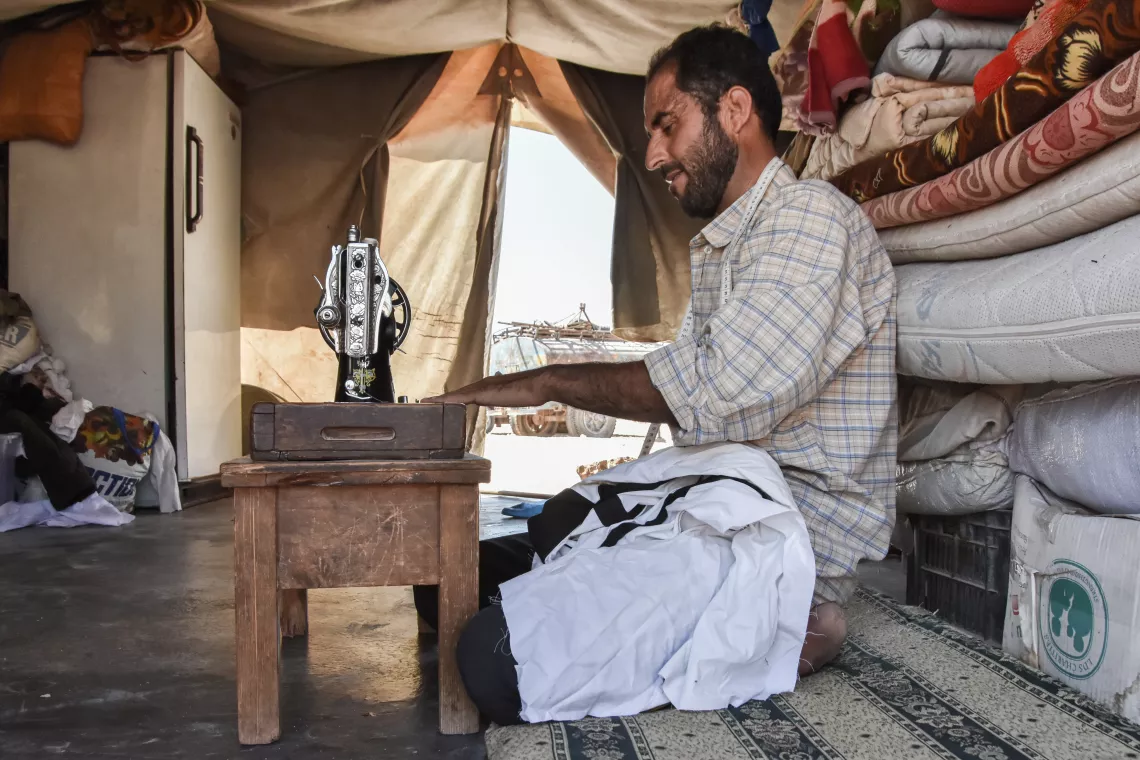
He suggested having a school for the camp residents. Parents were supportive, as their children had been out of school for a long time. They proposed the idea to the committees who were looking after the needs of the camp, and in September 2019 a school was opened. Nader was one of the teachers who volunteered to teach the children. “I did not expect that I would return to teaching after what I went through,” Nader says cheerfully. “The most beautiful part was some of those children were my students from my village. I was really excited about staying up late for hours to prepare for my classes,” he adds.
“I loved the idea of being a volunteer because every child needs education. I saw that in my children’s eyes. This is why I decided to volunteer.” Four months later, the camp provided the school with necessities and salaries for the teachers. After school hours, Nader continued his sewing work, as he had already established a customer base in the camp.
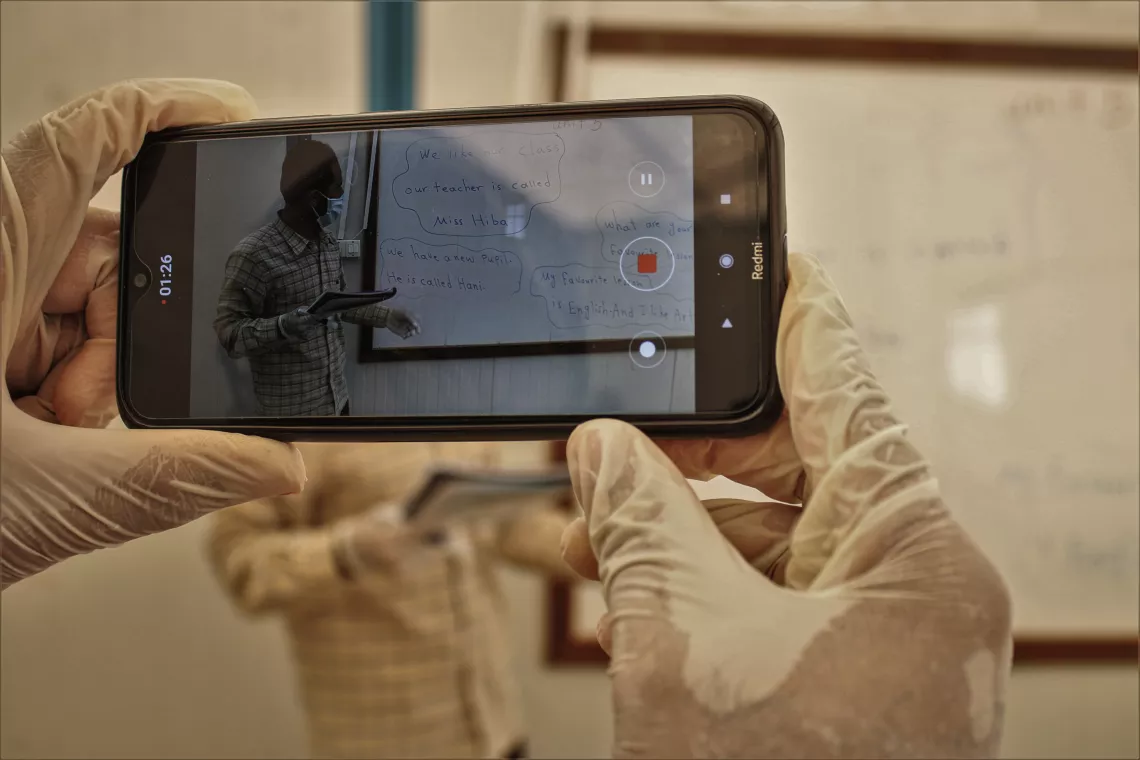
“I did not expect that I would return to teaching after what I went through. The most beautiful part was some of those children were my students from my village. I was really excited about staying up late for hours to prepare for my classes"
When the COVID-19 pandemic reached different parts of northwest Syria, IOM took precautions to prevent the spread of the virus in its reception centers and camps, and the school had to be closed temporarily . However, this did not stop Nader and his colleagues to think of alternative ways to continue teaching. They decided to give their classes virtually by recording them and communicating with students via WhatsApp. “Virtual education is the only way we can continue with our classes. We can’t stop,” he says. In this way, Nader and his colleagues are not only offering access to education for children in need, but they create new opportunities for their future. Thanks to their efforts, when things get back to normal, each child will have an educational base to continue their life and look for opportunities.
Despite all the setbacks that Nader has faced in life, he is still very optimistic about the future. “In spite of everything, the camp has saved my family and provided for our needs, such as food, water, and medical care, services that are hard to find outside this camp,” he says. “This has helped me save money for a medical operation I am planning to have in Turkey. I am not worried about COVID-19. I know someday the virus will disappear and we will go back to our normal lives. Meanwhile, we just have to be strong.”
Established in 1951, IOM is the leading UN-related agency in the field of migration and works closely with governmental, intergovernmental and non-governmental partners. IOM works to help ensure the orderly and humane management of migration, to promote international cooperation on migration issues, to assist in the search for practical solutions to migration problems and to provide humanitarian assistance to migrants in need, including refugees and internally displaced people. For more information about IOM Turkey, visit their website and follow them on Facebook, Twitter, Instagram and Youtube.
